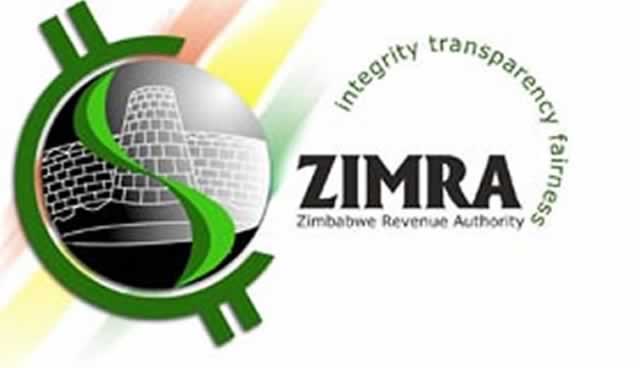Tight-rope for Zimra

 Albert Norumedzo In the Money
Albert Norumedzo In the Money
Zimbabwe’s informal sector is estimated at over US$6 billion, having gone in rapid growth mode as the constrained economic trajectory gradually shrivelled the employment base over the decade long period of economic demise, consequently forcing a greater number of the population into self-made business empires to meet their basic subsistence physiological upkeep.
Emerging from the petty trade of widows, the uneducated and the disadvantaged, the sector has become the life blood of the growing middle class that has outpaced formal sector driven societal, infrastructural and economic development and growth efforts.
Nowadays almost 90 percent of the population is involved in private business efforts in an informal setup, either to supplement inadequate formal sector remuneration, as the sole survival means or as a complete substitute to formal employment.
As pressure mounts on revenue authorities to support demands of the fiscus which have exerted recurring pressure on an increasingly shrinking revenue base, a huge responsibility rests upon Zimra to support Government’s economic and political endeavours confronted by the dilemma of antagonistic dynamics in the form of a retreating economy.
Recent activities by the revenue collection agency, in efforts to scavenge for every penny due to the tax man are testimony of the task befalling.
The revenue authorities are on a must prevail quest to collect all dues to the fullest of their potential and as logic would have it they have turned their eyes on all tax payers, great and small alike.
In light of the growth that the informal sector has exhibited and the high velocity of circulation of money in the high margin sector, the tax man‘s attention has been drawn to potential revenue that can be realized from the sector.
Despite the logic behind the motion to realise more revenue collection from the informal sector there are a few hurdles that might present stumbling blocks to revenue realisation efforts.
Chief among the hurdles to collection is the collection infrastructure and system.
The outfit and mould of the informal sector presents serious obstacles to the setting up of revenue collection structures, the hyper-inflationary era eroded the public’s confidence in the banking system with most if not all players in the informal sector operating without formal bank accounts hence the high velocity of circulation of hard cash.
Up to now financial institutions still struggle to establish working models to bank the thriving informal sector, setting up revenue collection points in this kind of set up becomes a challenge, participants in the sector have thrived in the outer circles of financial inclusion and in the process avoided the tax man and have no problem maintaining the status quo.
Legality and regulatory issues pose threat to the informal sector’s momentum: much of the informal sector thrives on the lacks of regulation and by-laws on the part of customs and council systems.
A good portion of informal sector operations border the thin line between legal and illegal, take for instance the Mupedzanhamo outfit which sells second hand clothes in Mbare, most of the bales containing the clothes and other merchandise are smuggled from Mozambique as declaring and paying customs duty on the merchandise would render the venture unprofitable.
Most vendors that throng the streets of Harare and form part of the informal sector do not have vending licenses and are constantly playing cat and mouse with the local council officials.
Case in point being: much of the informal sector is to a greater extent unregulated, in some way illegal and of no fixed aboard; these attributes make it difficult to fully incorporate the sector into national revenue planning.
Attempt to incorporate the sector into national revenue coffers might retract the growth pace recorded in the sector, should border controls intensify and limit the entry of smuggled goods, large parts of the informal sector incorporating cross border trading outfits will significantly shrink.
In efforts to raise revenue from the informal sector, Revenue authorities’ risks derailing the growth recorded in the sector which has over the years accommodated many Zimbabweans who could not be incorporated into formal employment structures.
If efforts to incorporate the informal sector’s contribution to revenue into the national wallet it becomes paramount to further develop, registration and rationalization structures aimed at legitimizing and regularizing the sector.
This includes creating databases of operators and forming bodies that represent all informal traders in their respective trades.
In order to enhance accountability and compliment collection it is paramount to create more physical infrastructure in the form of designate trading zones for specific trading platforms which can be revenue collection platforms.
Increase the ease of licensing for informal sector operations, the ministry on small to medium enterprises in conjunction with the registrar of companies should create a designated division that deals with informal operations registration, this will allow for a database to be created of most of the informal sector operations thereby enabling the proper and near accurate estimation of the size of the sector ans its potential contribution to the national economic trajectory.
For years the informal sector’s actual size as a percentage of GDP has remained ambiguous, no one can say with conviction how much in cash is circulating in the informal sector.
Some Economic stakeholders have argued that the size of the informal sector is over rated while some believe it’s significantly under played, tax planning in such a case becomes challenge.
Make more efforts to deepen the level of financial inclusion of the unbanked and under banked (who form the greater part of the informal sector).
Financial and non-financial institutions can help in measuring the magnitude of the informal sector through the provision of innovative financial products meant to serve the unique needs of informal sector participants.
Such products as Eco-Cash by Econet, Mobile Moola by FBC Bank as well as other forms of financial ingenuity by other players who have made efforts to tap into informal sector revenue flows are welcome initiatives which should be intensified if the full potential of the informal sector is to be realised.
The journey of a thousand miles begins with one step, indeed the informal sector is the first step towards massive industrialisation and development in Africa.
The informal sector is an essential part of the economic development and growth process in any economic setup, studies have revealed that Africa has the world’s largest informal business setup which is one of the most innovative and inventive environments in the word.
Zimbabwe has a thriving informal sector, filled with potential but it is still a long way from fully regularising and realising its full potential.
- Albert Norumedzo Equity and Alternative Investment Analyst. For feedback and comments email [email protected] or [email protected]










Comments